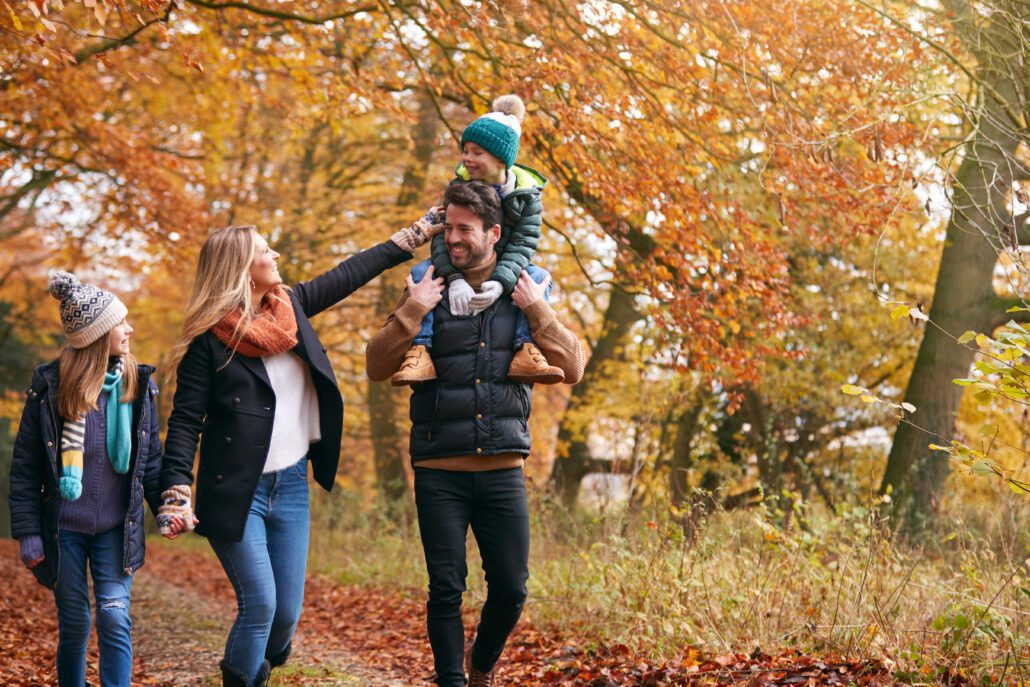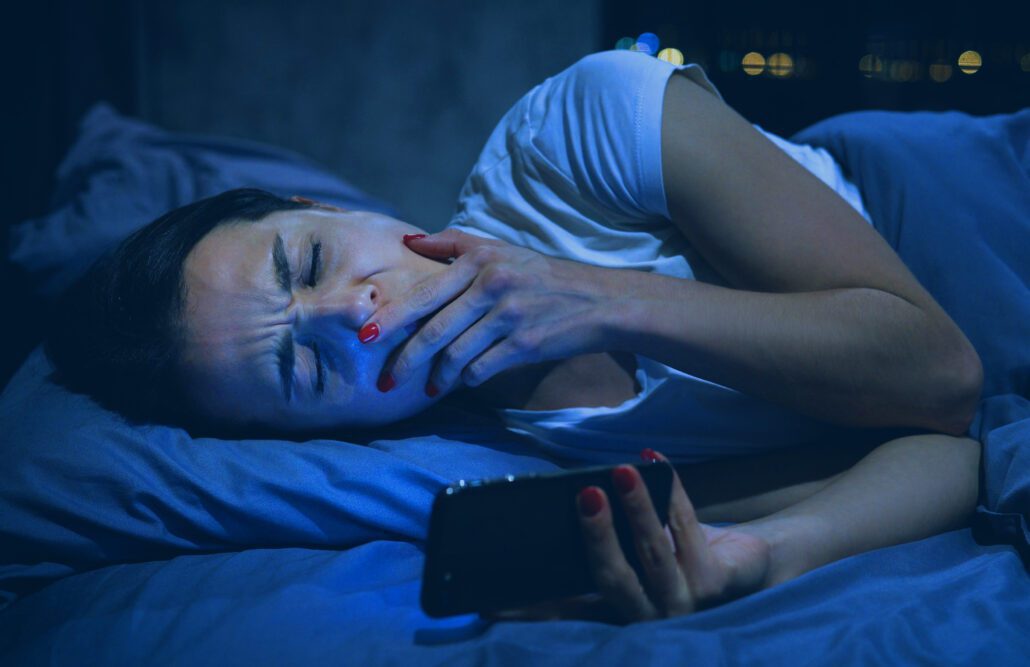Vegan Pumpkin Cheesecake
posted on November 23, 2022
posted on November 23, 2022

This delicious, dairy-free desert will be a hit at your Thanksgiving meal, or anytime that you are in the mood for a tasty treat. Don’t tell people its dairy-free until after they have tasted it and watch their surprise that something so creamy and good is vegan!
Ingredients:
2 8oz Tofutti cream cheese
1 cup canned pumpkin
1/3 cup sugar
1/4 cup lemon juice
1 tsp pumpkin pie spice
1 TBSP powdered egg replacer*
1 graham cracker crust
Instructions:
• Preheat oven to 350
• Place all ingredients, except for crust, in food processor and process until smooth.
• Transfer to graham cracker crust.
• Bake at 350 for 30 minutes.
*We prefer Ener-G Egg Replacer or Bob’s Red Mill Egg Replacer. You will be able to find these at your local health food store or at some supermarkets such as Raley’s.
posted on November 23, 2022

We’ve all heard it before: “You need to get your steps in!” But beyond being told to walk more, have you ever really stopped to think about why walking is so important? Turns out, this popular form of exercise is actually one of the most underrated exercises out there, and reaping its benefits is easier than you might think. This article offers three reasons to incorporate walking into your daily routine.
Walking is a low-impact exercise that can help you stay active and improve your overall health. Just 30 minutes of walking a day can help you burn calories, lower blood pressure, and improve cholesterol levels. Walking can also help you maintain a healthy weight, which, in turn, reduces your risk of heart disease and improves your bone and joint health. The health benefits of walking are truly endless.
Walking can reduce stress, anxiety, and depression and improve overall mental health. When you are stressed, your body is in a fight-or-flight state. This means that your heart rate and blood pressure are increased, and your breathing is quicker. Walking reduces these physical symptoms of stress, regulates the production of cortisol, also known as the stress hormone, and releases endorphins, i.e., hormones that improve mood and relaxation.
Walking is a great way to exercise without putting too much strain on your body. If you are new to exercise or have joint or bone problems, walking is a great way to start getting fit. Walking is a low-impact activity that can reduce your risk of injuries and improve your balance and coordination. Furthermore, since walking is a weight-bearing exercise, it can also strengthen your bones and muscles, making it the ideal form of gateway exercise.
The best walking routine is the one that works best for you. There is no “one size fits all” answer to how often you should walk or how long your walks should be. However, most experts agree that walking is a great exercise for overall health and that 30 minutes of moderate-intensity walking per day is a good goal for most people.
If you’re just starting out, you may want to start with shorter walks and gradually build up to the 30-minute mark. Once you can walk for 30 minutes at a time, you can focus on other aspects of your routine, such as the intensity of your walk and the terrain. Walking uphill or carrying a backpack can make walking more challenging and increase the intensity.
In terms of terrain, you may want to mix things up to keep your walks interesting. Walking on a treadmill can be boring, so try to find routes that take you through varied scenery. If you live in an urban area, try walking in a park or on a nature trail. If you live in a more rural area, you may have more options for interesting walks.
Walking is a great way to exercise and improve your overall health. Finding the right walking routine will make you more likely to stick with it and reap the benefits.
This blog provides general information and discussions about health and related subjects. The information and other content provided in this blog, website or in any linked materials are not intended and should not be considered, or used as a substitute for, medical advice, diagnosis or treatment. This blog does not constitute the practice of any medical, nursing or other professional health care advice, diagnosis or treatment. We do not diagnose conditions, provide second opinions or make specific treatment recommendations through this blog or website.
If you or any other person has a medical concern, you should consult with your health care provider or seek other professional medical treatment immediately. Never disregard professional medical advice or delay in seeking it because of something that you have read on this blog, website or in any linked materials. If you are experiencing a medical emergency, please call 911 or call for emergency medical help on the nearest telephone immediately.
posted on November 15, 2022

We’ve all been there – it’s late at night, you’re trying to go to sleep, but you can’t seem to drift off. So you check your phone one last time before putting it away, only to find that it’s now 2 am. You’ve been staring at a screen for hours, and you can’t help but think that’s why you’re still wide awake. But what precisely about blue light from screens keeps us awake?
This article explores how blue light affects your sleep quality and how long before sleep you should avoid blue light.
What is blue light?
Sleep is an essential part of our daily lives. It allows our bodies to rest and recharge and is critical for our overall health and well-being. Unfortunately, our modern lifestyles often make it difficult to get a good night’s sleep. One of the main culprits is blue light from screens, such as computers, smartphones, and tablets.
Blue light is a type of visible light shorter in wavelength than other colors. This means it has more energy and is thus brighter and more stimulating. Because of this, blue light strongly impacts our bodies and brain. For example, blue light emitted by LED and electronic devices can affect your hormone production, alertness, and sleep cycles.
Devices that emit blue light:
How does blue light affect your sleep quality?
The body’s natural sleep rhythm is governed by the circadian clock, which is sensitive to light. In the daytime, the brain is stimulated by blue light, making us more alert. At night, however, blue light suppresses the production of melatonin, the hormone that makes us feel sleepy. According to a study published in the Journal of Biological and Medical Rhythm Research, blue light disrupts the production of melatonin, which can prevent you from sleeping.
Melatonin levels should naturally rise in our bodies approximately two hours before sleep. The rise in melatonin directly contributes to the drowsiness that signals you’re ready for sleep. But if you’re exposed to blue light, melatonin production can get disrupted, making it harder to fall asleep or stay asleep. Blue light exposure can also lead to poorer quality sleep, as it can reduce the time spent in deep sleep.
How much sleep does an average adult need?
The average adult needs between 7 and 8 hours of sleep per night. However, many factors can influence how much sleep a person needs, including age, lifestyle, health, and stress levels. And, of course, there are always exceptions to the rule. A small percentage of people can function perfectly well on six hours of sleep daily.
How long before going to sleep should you avoid blue light?
As mentioned previously, your body starts increasing melatonin levels about two hours before sleep to help you prepare for bed. But blue light can disrupt melatonin production, which can make you feel alert even when you should be sleeping. To avoid disrupting melatonin production, you should avoid all sources of blue light at least an hour or two before sleep.
This blog provides general information and discussions about health and related subjects. The information and other content provided in this blog, website or in any linked materials are not intended and should not be considered, or used as a substitute for, medical advice, diagnosis or treatment. This blog does not constitute the practice of any medical, nursing or other professional health care advice, diagnosis or treatment. We do not diagnose conditions, provide second opinions or make specific treatment recommendations through this blog or website.
If you or any other person has a medical concern, you should consult with your health care provider or seek other professional medical treatment immediately. Never disregard professional medical advice or delay in seeking it because of something that you have read on this blog, website or in any linked materials. If you are experiencing a medical emergency, please call 911 or call for emergency medical help on the nearest telephone immediately.